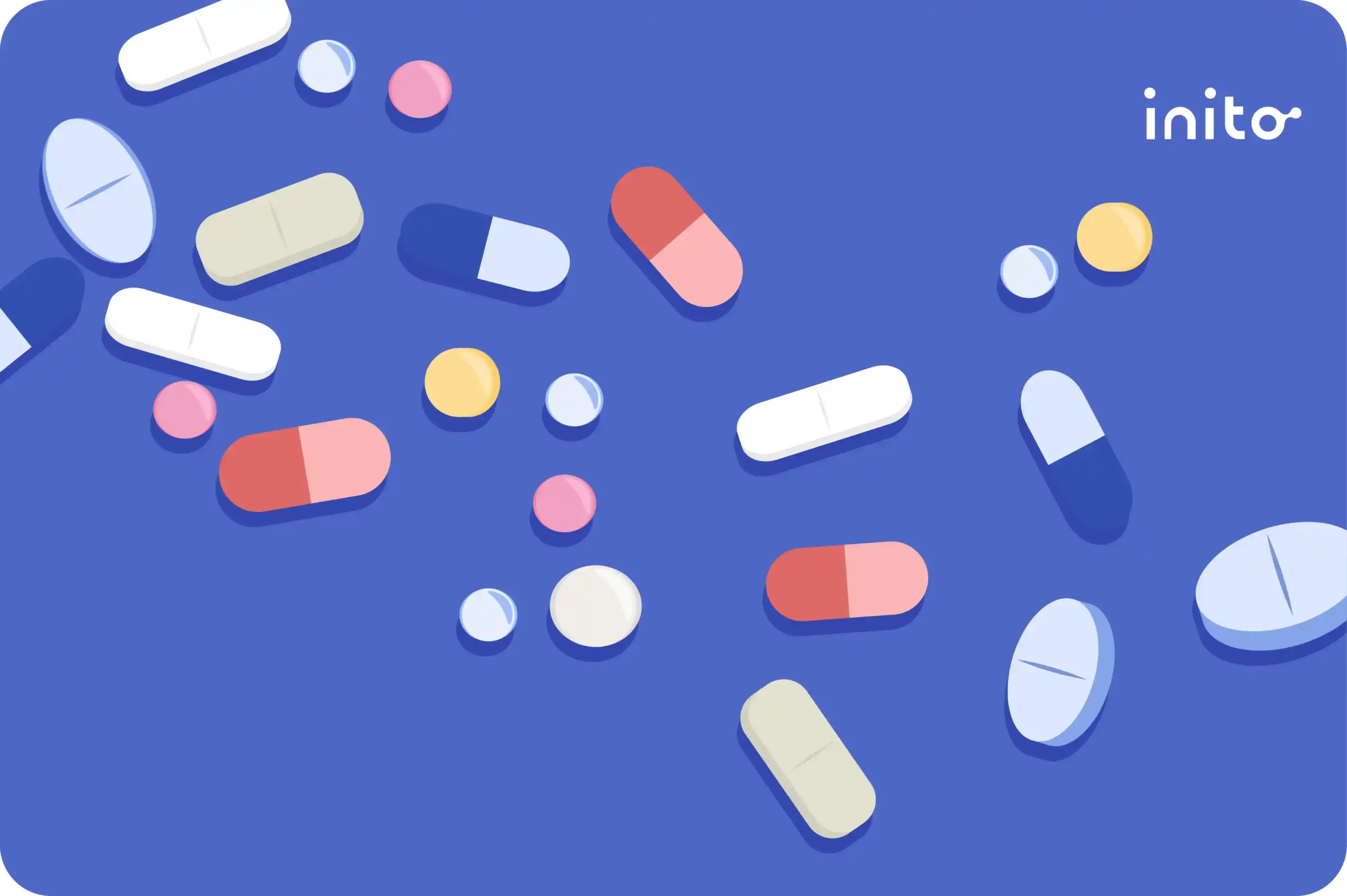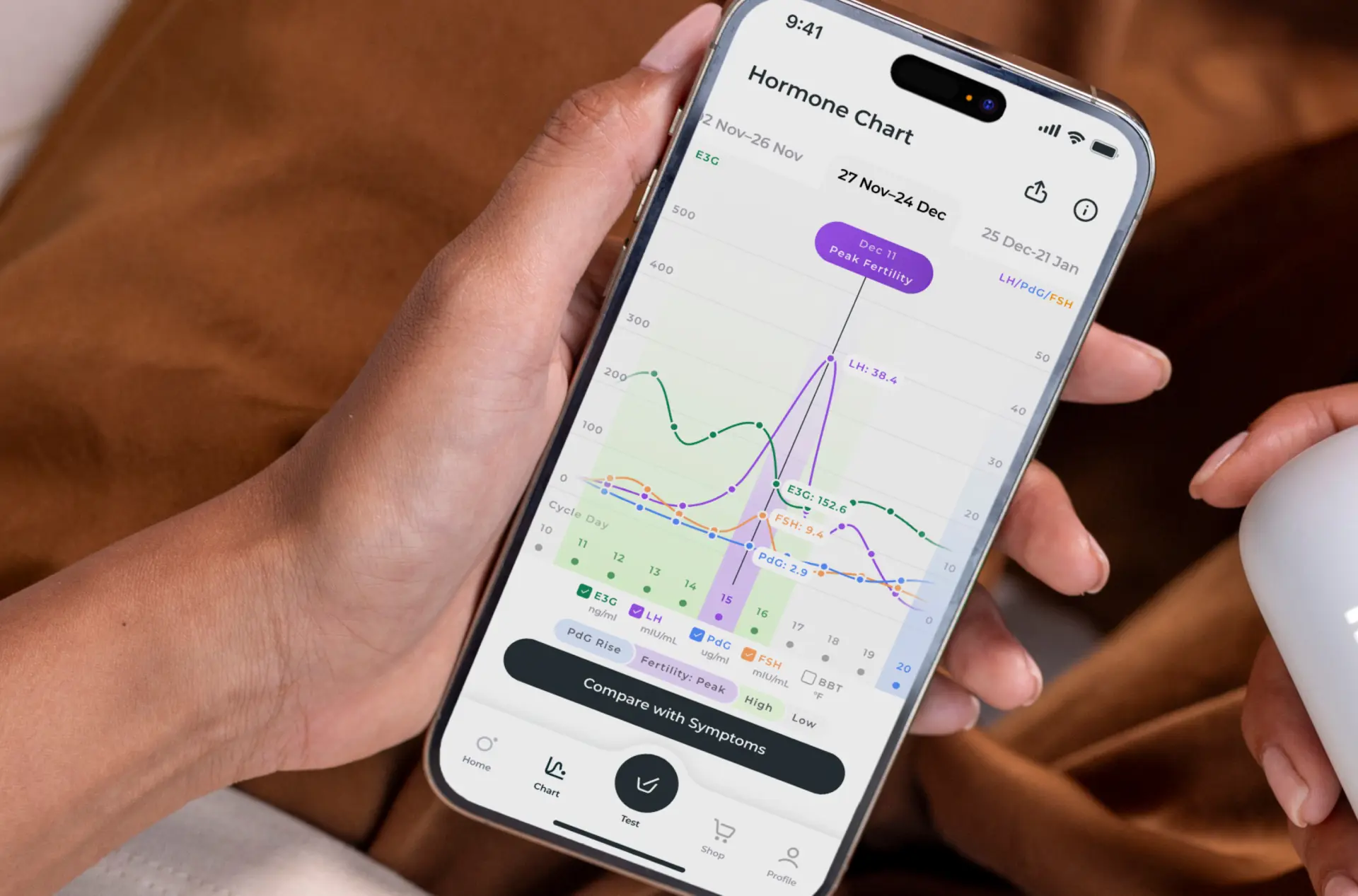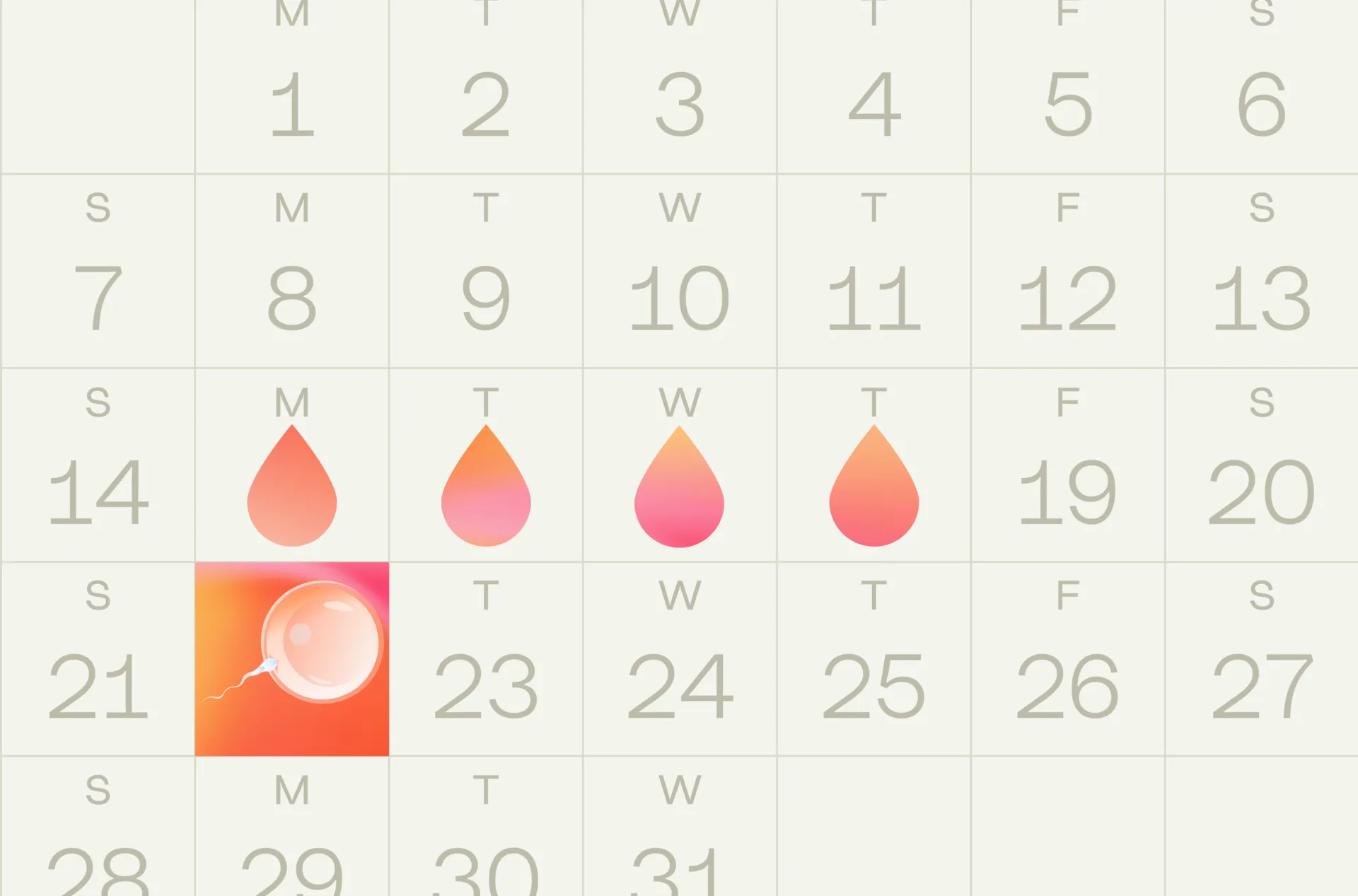Content table
Many women report having a delayed period after taking a regimen of antibiotics. But can antibiotics make your period late? Is that actually true?
Let’s get straight to it. Yes, it’s totally possible to experience changes to your period when you’re ill. But it’s not because of the antibiotics you’re taking.
There are actually a lot of factors that can affect your menstrual period around the time of being sick. It could be from stress, the sickness itself, or an underlying condition.
But in case you’re the type who likes to have all the facts, keep reading for all you need to know about antibiotics and your period.
Takeaways
- You may experience changes to your period at the same time of taking antibiotics. But the antibiotics are not the cause for these disruptions to your menstrual period.
- Illnesses affect your stress levels and by extension your hormone levels. This can lead to delayed ovulation and therefore changes in your period.
- There’s only one antibiotic that’s been documented for causing disruptions to women’s menstrual cycles. It’s called rifampicin, and it’s used for treating tuberculosis.
- Some medications are known to have potential effects on your period. These include NSAIDs, antipsychotics, thyroid medications, antidepressants, blood thinners, chemotherapy, and birth control.
- Lifestyle factors can also affect your period. Stress levels, being under or overweight, being under or overactive, your diet and sleep habits all play a role in your cycle regularity.
- Some underlying conditions can affect the regularity of your menstrual period as well. Examples include thyroid disease and PCOS.
- There are a few actions you can take to promote a regular menstrual cycle. Try getting enough sleep and movement, manage your stress, and eat a well-balanced diet.
- If you have concerns about your period being late or irregular, it’s a good idea to check in with your doctor. They can better evaluate your unique situation!
Can antibiotics affect your period?
The short answer is no. For the most part, there’s no science that backs up the theory that antibiotics delay your period.
The only exception to this is an antibiotic called rifampin (sometimes called rifampicin).
This is a drug that’s used to treat tuberculosis patients. And it’s the only antibiotic proven to cause altered hormone levels that may cause delayed, abnormal, or absent period bleeding. Rifampin can also mess with the efficacy of hormonal birth control.
Not on this particular antibiotic but are still having a delayed or unusual period?
We totally understand the frustration and confusion. So keep reading the next section to learn the real reason your period may be impacted when you’re on medications.
So what’s up with my period after taking antibiotics?
There are many reasons you can experience changes to your period. If this happens around the time you’re taking antibiotics though, it may seem like the antibiotics are to blame. But research tells us that they are not the true culprit. It’s simply a case of being at the wrong place at the wrong time.
You see, antibiotics are typically prescribed when you have some sort of illness or infection.
And here’s what’s going on in your body when you’re ill:
- You may have more stress and inflammation, changes in appetite and sleep, and disrupted routines.
- When your stress levels increase, your body produces higher amounts of cortisol, aka the “stress hormone.”
- Higher cortisol levels lead to a dip in your progesterone levels as well as lower GnRH, FSH, and LH.
- With these fertility hormones all out of whack, ovulation becomes disrupted.
- Delayed or absent ovulation can cause you to have a missed, late, or irregular period.
This same series of events doesn’t only happen when you’re sick though. Any time that your body is under heightened stress, your menstrual cycle may be affected.
The good news is that these disruptions tend to be temporary. So once your illness passes and your body’s stress levels even out, your normal menstrual cycle should resume.
And in case you’re wondering about other medications besides antibiotics, next we’ll explore how other drugs can impact your period too.
Other medications that can affect your period
Certain painkillers
Some over-the-counter painkillers such as nonsteroidal anti-inflammatory drugs (NSAIDs) may delay your period. This is because NSAIDs reduce your body’s production of a hormone called prostaglandin. Prostaglandins play a big role in causing the contraction of your blood vessels and uterine muscles.
Antidepressants
Some antidepressants can alter your period as well. This is because many of them lead to higher prolactin levels. (This is especially serotonin reuptake inhibitors, SSRIs.)
In women, prolactin is important for regulating ovarian function. And when prolactin levels are higher, ovulation and your period can become interrupted. In fact, a study found that taking antidepressants led to a higher risk of menstrual disorders.
Antipsychotics
Like antidepressants, antipsychotics may also cause higher levels of prolactin. This can lead to experiencing irregular periods.
Thyroid medication
Your thyroid hormones greatly influence your body’s ability to produce, circulate, and get rid of progesterone and estrogen. Abnormal amounts of progesterone and estrogen will result in changes to your menstrual cycle and period.
Blood thinners (like aspirin)
When you take a blood thinner, aka an anticoagulant, it works to prevent your blood from clotting. This is why taking a medication like aspirin can lead to a heavier and longer-than-normal period.
Chemotherapy
Our heart is with you if you’re going through chemo. If you’ve already had chemo treatments or will be starting them soon, you may already know that chemotherapy can affect your menstrual cycle.
Specifically, it changes the function of your hypothalamic-pituitary-adrenal axis (HPA axis). This means the communication between your hypothalamus, your pituitary gland, and your adrenal gland becomes disrupted. And this disruption can alter your ovarian function.
Of course, medications and illness aren’t the only factors that lead to changes in your menstrual period.
Read on to see what else could be going on behind the scenes of a delayed or unusual period.
Most common reasons for a delayed period
A late Aunt-Flo or a no-show period may cause some distress. But there are a lot of reasons you could have a late or abnormal period.
Here are some of the most common culprits:
- Pregnancy
- Starting or stopping birth control
- Weight fluctuations
- Lifestyle factors like sleep, stress, and exercise levels
- Conditions like thyroid disorders and polycystic ovary syndrome (aka PCOS)
Know more: Why Does My Period Date Change Every Month?
Now that you know all the reasons you could be experiencing a messed up period, let’s talk about what you can do about it.
What should you do if you have a late period?
If you’ve been taking antibiotics or are getting over an illness, give yourself some time to recover. Once your body gets back to normal, your regular menstrual cycle should return.
And managing certain lifestyle factors can help promote more predictable cycles too.
For instance, you can:
- Get enough sleep. Aim for about 7 – 9 hours of sleep each night.
- Eat a hormone-balancing diet. This will help promote a healthy weight.
- Get regular, moderate exercise. About 30 minutes of light to medium intensity each day will do just fine!
- Manage your stress levels. Deep breathing and mindfulness practices are a great place to start!
- Track your cycles to get to know your unique menstrual cycle and patterns better. The Inito monitor can help you with this by tracking 4 key fertility hormones – LH, estrogen, and FSH help track your fertile window, while PdG (urine metabolite of progesterone) confirms when you ovulate. What’s more, you can also record any symptoms you experience – you may be surprised to notice how symptoms can vary with your hormone trends!
In the event that you’re still concerned though, consider calling your doctor.
Here are some scenarios where you may want to check in with your healthcare professional:
- You have a menstrual cycle that’s less than 21 days or longer than 35 days
- Your menstrual bleed is less than 2 days or longer than 8 days
- You’ve gone 3 months or longer without a menstrual period
- You’re having to change your pad or tampon every hour because your flow is so heavy
- Your period is accompanied by severe cramping, pain, nausea, or vomiting

FAQs
Antibiotics alone have not been proven to affect your period. But the underlying condition (which is the reason for you taking the antibiotics) could cause you to bleed or spot between periods. It’s best to check with your doctor if you’re concerned about delayed or irregular periods.
Yes, this is possible! When you’re sick, your body’s stress levels increase. This can create a chain reaction where your hormones fluctuate out of normal range. Then the hormonal imbalance can lead to a later-than-usual period.
There’s no set amount of time that’s been proven in research studies. It all depends on the particular circumstances of your health and illness. But if you have concerns about how your period is impacted when you’re sick, consult with your doctor. They can give you more specifics based on your unique medical situation.
Yes, if you’re on antibiotics, it is possible to have your period come early. But again, this isn’t because of the antibiotics. Instead, it has to do with how your hormones fluctuate when your body is ill and under more stress.
Once the illness goes away, your hormone levels should soon go back to their normal levels. It also may depend on what phase of your cycle you were in when you first became ill.
Was this article helpful?
- Amenorrhea following rifampin administration during oral contraceptive use
- Non‐steroidal anti‐inflammatory drugs for heavy menstrual bleeding – PMC
- Antidepressants and menstruation disorders in women: a cross-sectional study in three centers – ScienceDirect
- Hyperprolactinemia, Clinical Considerations, and Infertility in Women on Antipsychotic Medications – PMC
- Thyroid dysfunction and female infertility. A comprehensive review – ScienceDirect
- Antidepressant use and circulating prolactin levels – PMC












